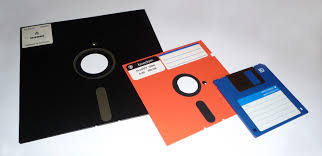 Sometimes a good case can be made for remaining a technological Luddite; sometimes eschewing the latest-and-greatest technical gizmo may actually work for you.
Sometimes a good case can be made for remaining a technological Luddite; sometimes eschewing the latest-and-greatest technical gizmo may actually work for you.
Take the case of the United States’ nuclear deterrent. A recent report on CBS 60 Minutes showed us how part of the computer system responsible for launch control of US intercontinental ballistic missiles (ICBM) still uses antiquated 8-inch floppy disks. This part of the national defense is so old and arcane it’s actually more secure than most contemporary computing systems and communications infrastructure. So, next time your internet-connected, cloud-based tablet or laptop gets hacked consider reverting to a pre-1980s device.
From ars technica:
In a report that aired on April 27, CBS 60 Minutes correspondent Leslie Stahl expressed surprise that part of the computer system responsible for controlling the launch of the Minuteman III intercontinental ballistic missiles relied on data loaded from 8-inch floppy disks. Most of the young officers stationed at the launch control center had never seen a floppy disk before they became “missileers.”
An Air Force officer showed Stahl one of the disks, marked “Top Secret,” which is used with the computer that handles what was once called the Strategic Air Command Digital Network (SACDIN), a communication system that delivers launch commands to US missile forces. Beyond the floppies, a majority of the systems in the Wyoming US Air Force launch control center (LCC) Stahl visited dated back to the 1960s and 1970s, offering the Air Force’s missile forces an added level of cyber security, ICBM forces commander Major General Jack Weinstein told 60 Minutes.
“A few years ago we did a complete analysis of our entire network,” Weinstein said. “Cyber engineers found out that the system is extremely safe and extremely secure in the way it’s developed.”
However, not all of the Minuteman launch control centers’ aging hardware is an advantage. The analog phone systems, for example, often make it difficult for the missileers to communicate with each other or with their base. The Air Force commissioned studies on updating the ground-based missile force last year, and it’s preparing to spend $19 million this year on updates to the launch control centers. The military has also requested $600 million next year for further improvements.
Read the entire article here.
Image: Various floppy disks. Courtesy: George George Chernilevsky, 2009 / Wikipedia.

